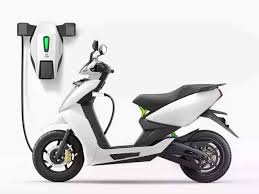Electric Bike, In recent years, the electric bike, or e-bike, has emerged as a game-changer in urban transportation. Offering a practical, eco-friendly, and affordable solution to the challenges of commuting, e-bikes are transforming the way people move through cities and suburbs. Whether you’re looking to avoid traffic, reduce your carbon footprint, or simply enjoy a leisurely ride, electric bikes have something to offer everyone.
What is an Electric Bike?
An electric bike is a bicycle equipped with an electric motor that assists the rider in pedaling. While it retains the fundamental structure of a traditional bike, its electric component significantly enhances efficiency and ease of use. Most e-bikes feature rechargeable batteries that can be charged using standard electrical outlets. Depending on the model, an electric bike can reach speeds of up to 28 mph (45 km/h), and the range typically varies between 20 to 100 miles (32 to 160 km) on a single charge.
There are two main types of electric bikes:
- Pedal-assist (Pedelec): The motor assists only when the rider is pedaling. This type is the most common and allows for a smooth, effortless ride without sacrificing the feel of traditional cycling.
- Throttle-based: In these models, the rider can activate the motor without pedaling, using a throttle like a motorbike.
Advantages of Electric Bikes
1. Eco-Friendly Transportation: One of the most compelling reasons to switch to an electric bike is the environmental impact. With zero emissions, electric bikes provide a greener alternative to gas-powered vehicles. As cities worldwide push for sustainable transportation solutions, e-bikes are seen as part of the larger effort to reduce urban pollution.
2. Cost-Effective: Electric bikes are far more affordable to operate than cars or motorcycles. Charging the battery costs just a few cents, and maintenance requirements are minimal compared to fuel-powered vehicles. Additionally, many governments offer incentives and subsidies for purchasing electric bikes, making them even more accessible.
3. Efficient Commuting: In congested urban areas, traffic is often a nightmare for drivers. E-bikes allow commuters to bypass traffic jams, travel through bike lanes, and reach their destinations faster. For short to medium distances, an electric bike can be as fast, if not faster, than a car.
4. Health and Fitness: Though e-bikes have electric assistance, riders still need to pedal, promoting physical activity. Unlike traditional bikes, e-bikes reduce the strain on the knees and joints, making them ideal for older adults or those with physical limitations. Many riders report that using an electric bike encourages them to cycle more often than they would on a standard bicycle.
5. Versatility and Accessibility: Electric bikes come in various designs, from compact folding models to robust mountain bikes, catering to different needs and terrains. Whether you need a commuter bike for city roads or a durable model for off-road adventures, there’s likely an e-bike that suits your lifestyle.
The Role of Electric Bikes in Urban Planning
As urban centers grapple with overcrowded streets and environmental concerns, electric bikes have become an integral part of new urban mobility solutions. Cities like Copenhagen, Amsterdam, and Paris have invested heavily in bike-friendly infrastructure, including dedicated lanes, parking, and charging stations. These efforts aim to reduce car dependency, improve air quality, and encourage a more active lifestyle.
Additionally, e-bikes are increasingly being integrated into public transportation systems. Some cities allow commuters to take their bikes onto buses or trains, while others have introduced bike-sharing schemes that include electric models.
Overcoming Challenges
While the benefits of electric bikes are clear, there are still challenges to widespread adoption. One of the primary concerns is safety. As e-bikes are faster than regular bicycles, some riders may feel uneasy sharing the road with cars. However, cities are addressing these concerns by building more protected bike lanes and improving traffic regulations to ensure the safety of cyclists.
Another challenge is the initial cost. Though e-bikes are cheaper in the long run, their upfront cost can be significantly higher than standard bicycles. However, as technology improves and more manufacturers enter the market, prices are expected to decrease over time.
The Future of Electric Bikes
The future of electric bikes looks bright. With advancements in battery technology, e-bikes are becoming more powerful, lighter, and longer-lasting. The global shift toward sustainable living will likely accelerate the adoption of electric bikes, especially as cities continue to prioritize green transportation.
In addition to urban commuters, e-bikes are gaining popularity among recreational cyclists, delivery workers, and businesses looking to reduce their carbon footprints. As more people realize the benefits of electric bikes, they will undoubtedly become a staple of modern transportation.
Conclusion
The electric bike represents a significant shift in how we think about transportation. It combines the convenience of motorized travel with the environmental and health benefits of cycling. As cities evolve and adapt to new mobility needs, electric bikes are poised to play a crucial role in shaping the future of sustainable, efficient, and enjoyable transportation. Whether you’re looking for an alternative to driving or just want a fun way to explore your surroundings, an electric bike is an excellent choice.
The e-bike revolution has only just begun, and it’s riding full speed into the future.
You Might Also Like These:

